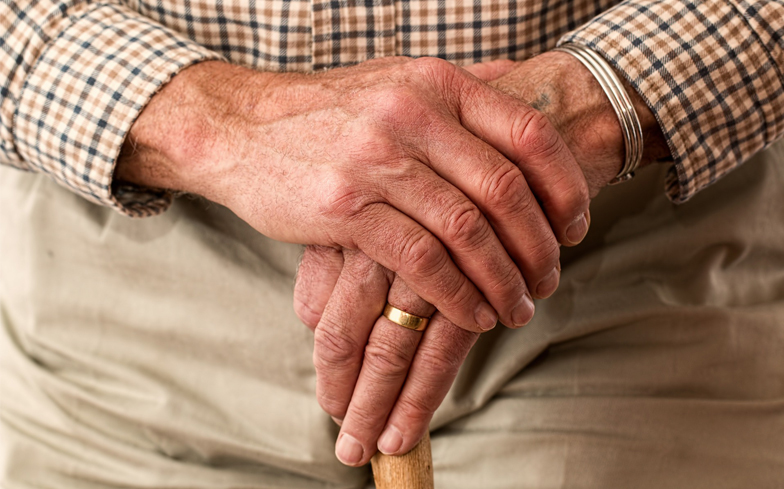
Coronavirus is having a particularly negative effect on older members of the LGBTQ community.
Older people already experience high levels of loneliness and social isolation, but that issue can be even more prevalent among those in the LGBTQ community, who are more likely to not have children and lack family networks.
Now, with lockdown and social-distancing measures in place as a result of the COVID-19 pandemic, it’s worried that the problem will become even worse, as visits from loved ones or carers become even less frequent or stop altogether.
Opening Doors London is the largest charity providing information and support to LGBTQ people over the age of 50 in the UK. They’ve had to halt hundreds of face-to-face visits to ensure the safety of their older members and volunteer supporters.
“For some of our members, seeing their befriender or going to one of our groups is the only time in the week that they get to be around other LGBTQ people and feel part of a community who appreciates them for who they are,” explains Befriending Coordinator Meghan Herring.
“Having to suspend our face-to-face activities, we knew that it would be hard on a lot of people. One of our members said, ‘I just want to talk freely to someone to help give my brain a break. I really need to rest it more but my thoughts have nowhere to go’.”

The charity have responded by moving all their befriending relationships over to the phone, while a weekly Zoom group has replaced their usual Rainbow Memory Cafe for people with dementia. They’re also ensuring that their members have access to food and other necessities, and are reminded to take medication when needed.
One person who relies on the service provide by Opening Doors is Max, a pansexual man in his 60s, who lives in a remote part of the UK. His family “don’t want to hear” about his identity so it’s something he has to keep to himself and not talk about.
Max says this has had a negative effect on his self-worth, and has led to alcohol misuse. But having someone outside of his family who he can talk to about what it means to be a queer man in later life – as well as his interests like poetry, music and football – without judgement has been a lifeline.
Another older person who relies on Opening Doors says their anxiety has increased and they feel less safe as a result of the coronavirus pandemic. A visit from their befriender was the only face-to-face interaction they were having before lockdown.
“I am not going to pretend I am happy, I’m not, I was only seeing one person and now that is gone. They say this is for my safety but I feel less safe, my anxiety is higher, I just want to be able to see my befriender,” they explain.
“I am happy they are calling me three times a week but it isn’t the same. I can’t wait for this to all be over, I feel like my final days are being wasted.”

A unique problem faced by older LGBTQ people is that they don’t always feel they can be open about their sexuality or gender identity as they become more reliant on carers. Some even face homophobia or transphobia from the people who are meant to be looking after them.
“We had a member call in because his carer had stopped coming when they found out he was gay. Because of the pandemic, this was the only person he had been seeing on a regular basis,” explains Meghan.
“It’s more important now that ever that older LGBTQ people have someone checking in on them – someone to talk to who really appreciates them for their identities and life experiences.”
Like many small charities during the current COVID-19 lockdown, Opening Doors have experienced funding being withheld and have limited resources to meet demand – a level of demand that’s likely going to increase over the next few months.
They’ve now launched a fundraiser to reach a £15,000 target that will help train volunteers to continue providing support and a friendly voice for older LGBTQ people who need it most.

“Since the outbreak, over 100 people have already signed up to be telefrienders which has really warmed our hearts. Now, what we need is money to increase our capacity” says Meghan. “We’ve had so many older LGBTQ people getting in touch for support.”
The need for telefriending has already increased the work of Opening Doors by 400%, alongside moving their face-to-face relationships over to phone. It’s also vital that the charity finds a good match so their members can have meaningful conversations.
“The other day, a new member had their first call with their telefriender and told us, ‘She’s such a gift – a lovely, kind and understanding person. Someone who knew exactly where I was coming from and understood me’,” says Meghan.
“This is what we want to give to every LGBTQ person over 50 experiencing increased isolation right now, and every donation gets us closer to that.”
To find out more about the work Opening Doors do or to sign up for their services, visit their website. If you are able to donate to their fundraiser, you can do so here.



